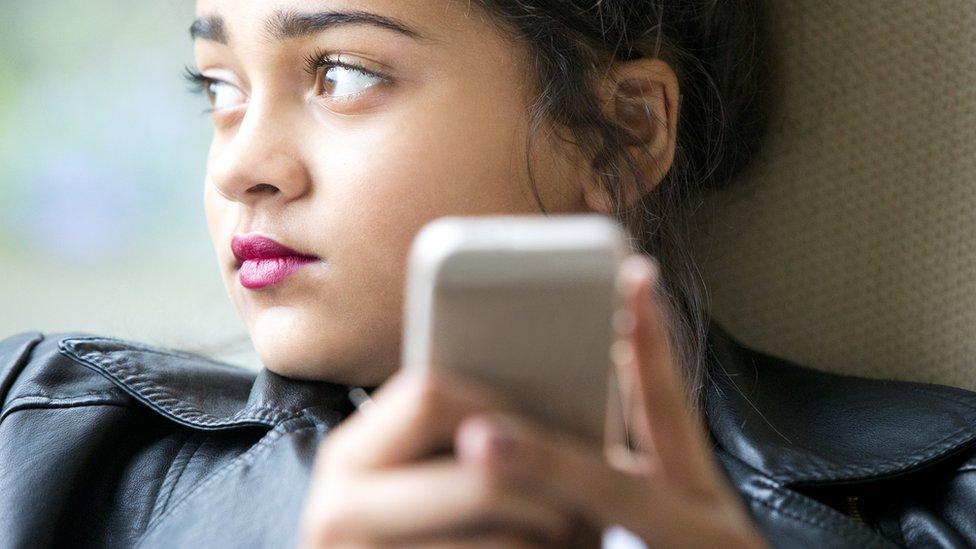Gloucestershire Mentoring Programme helping girls and young women
- Published
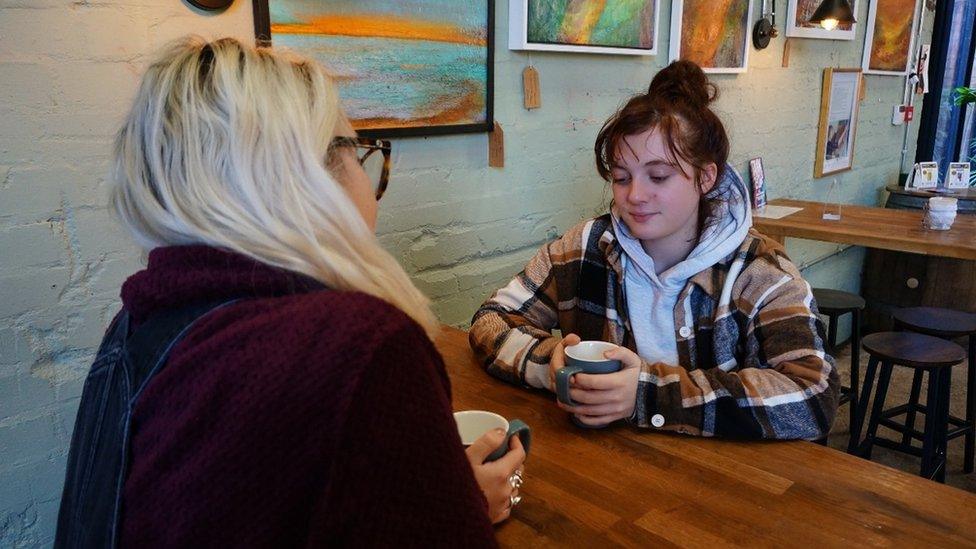
The Gloucestershire Mentoring Programme is free for 11-25 year-old girls and young women
A mentoring programme aimed at empowering vulnerable girls and young women considered at risk of being drawn into crime has reached 162 people since being set up in March. The people running the Gloucestershire Mentoring Programme, which is free for 11-25 year-olds, aim to help 300 people over two years.
"I think I've always known that my behaviour isn't good," Chloe said.
"I've had a lot of counsellors inside school, outside school, and I've had a couple of therapists.
"They told me I need to change my ways, otherwise it can get me a serious trouble when I'm older, but I didn't think that helped very much.
"With mentoring, they've sat down, and they've said it in a way where they're not telling you 'you need to sort yourself out', they're giving you advice.
"I also know that they aren't going to just leave."
Fifteen-year-old Chloe, not her real name, admits she has a hard time trusting people.
Her mum tells her she has had "a very messed-up childhood".
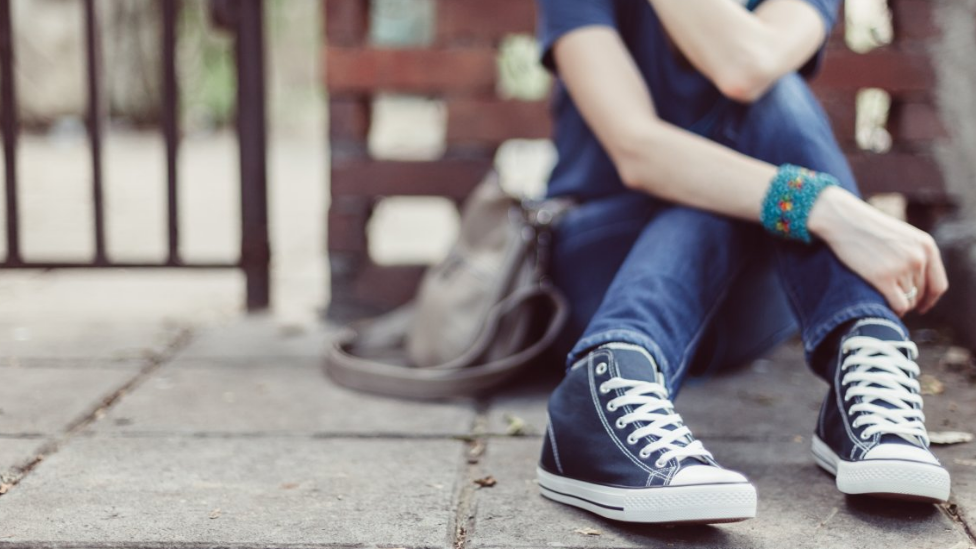
Chloe, not pictured, said she has a hard time trusting people
Her dad walked out on them when she was a baby and as a result Chloe was moved back and forth between the two parents, before her dad decided "he wasn't comfortable" with her living with him anymore.
"He didn't really want me," Chloe said.
At only 11-years-old, she was scared she would end up in a foster home, but instead her nan, who lived 50 miles away, took her in.
"It was kind of like I didn't have any parents because I didn't have a proper phone, so it was hard to keep in touch with my mum and my dad.
"My mum wasn't driving at the time, so she couldn't come down and see me and my dad's never really attempted to see me much."
When Chloe was about 13, her nan also decided she did not want her living with her anymore.
"I remember I burst out in tears, thinking that I was going into care, because I thought my mum didn't want me, either.
"It was very emotional day, but then both my mum and my stepdad said that they're happy for me to live with them, and I've been living with them since."
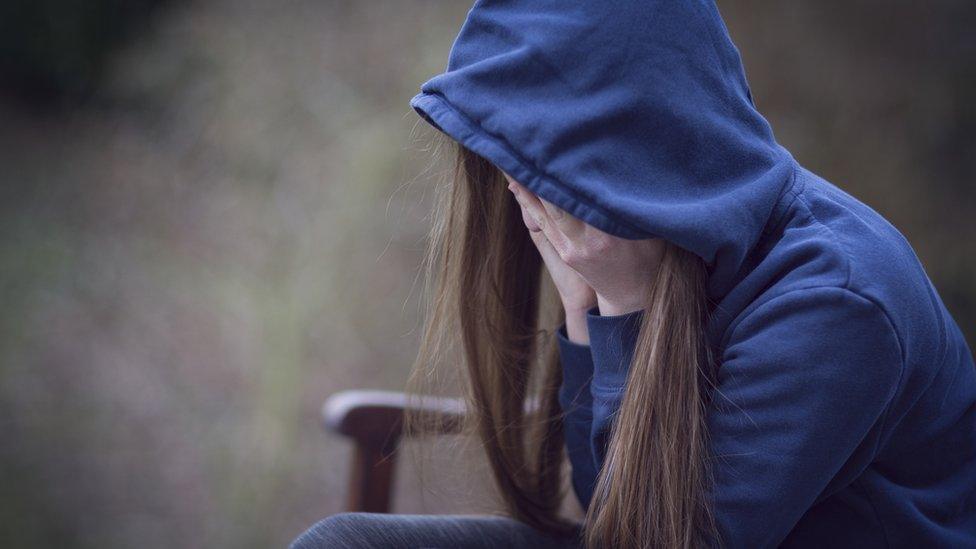
Chloe said she struggles to control her emotions and easily gets angry and frustrated
But Chloe's home life is still difficult. She lives in a two-bedroom council flat, which she also shares with her two younger siblings.
Now 15, she has attended seven different schools - moving through so many because of her behaviour and threats to expel her.
She struggles to control her emotions and easily gets angry and frustrated.
Frequently getting into trouble, she was "mouthing off" at teachers and hitting out.
Despite going through various different councillors nothing seemed to help. That was until she was put in touch with the Gloucestershire Mentoring Programme.
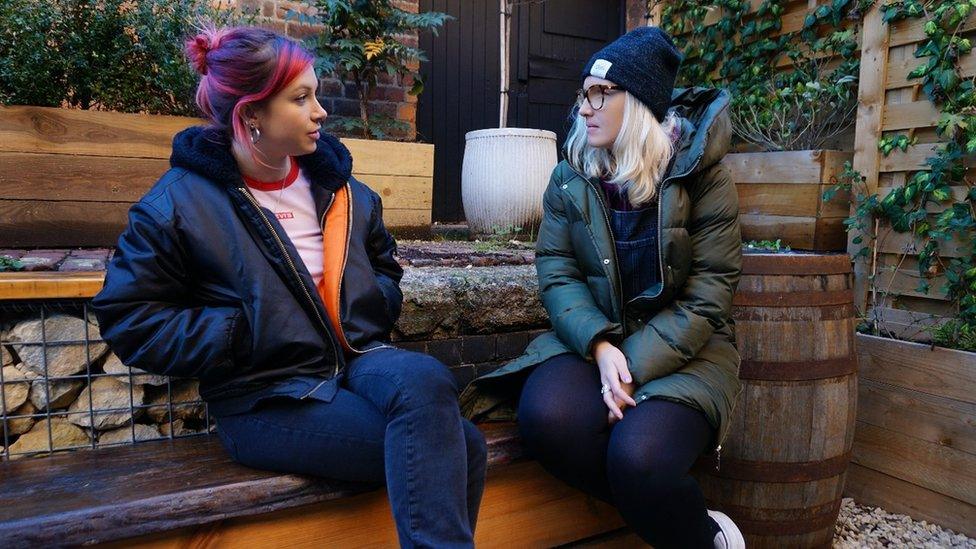
The programme matches mentees to mentors who are most likely to help them
The programme works with seven different organisations across Gloucestershire and South Gloucestershire and is free to girls and young women in the area.
Launched in March, it offers those at risk of becoming involved in the criminal justice system the chance to form a trusted relationship with a trained volunteer.
It has already had 162 people referred, who are either currently being assessed or now in a mentoring relationship.
For Chloe, the chance to form a bond with a trusted adult has started to make a difference.
Her mentor helps her to "get in the right head space", she said, and also helps with things like homework.
"We just kind of talk and listen to each other, and it's really nice, because it gets me away from home, and it gets me off my phone and everything else," Chloe said.
"I wouldn't have calmed down as much as I have, because they give me advice on how to deal with my emotions when I'm feeling a certain way, and possibly how to just push myself away from a situation that can make me lash out."
Since joining the programme Chloe has now started a part-time job and is looking at college applications - something she did not think would be possible.
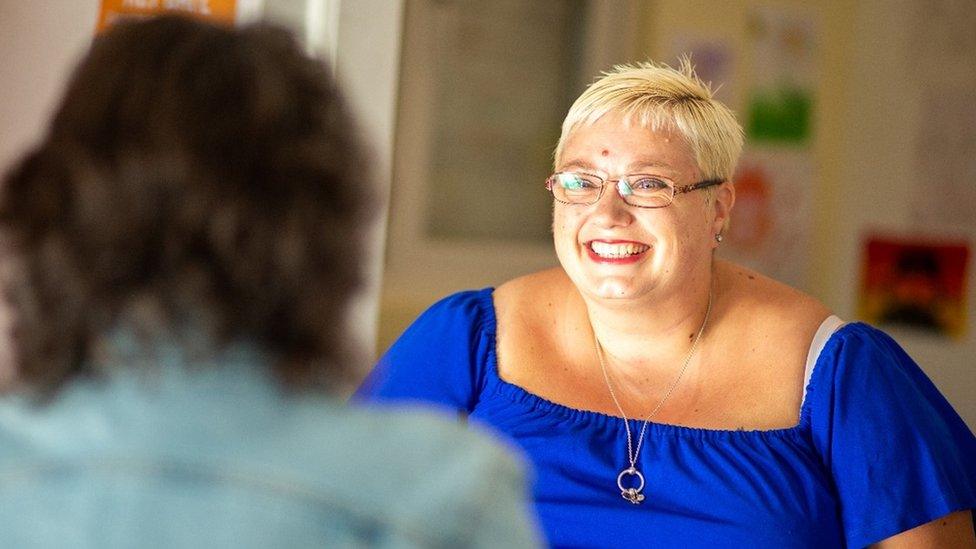
Rachael started working with The Door two years ago
Girls and young women welcomed onto the programme have all suffered "Adverse Childhood Experiences".
This can range from physical, sexual or emotional abuse to neglect, substance misuse or having a relative in prison, amongst others.
They may also be experiencing "adverse community environments", such as poverty or violence, displaying antisocial behaviour, or be linked to others involved in criminal activity.
The programme uses volunteers from all walks of life, aged over 18, with one volunteer who is 80-years-old.
Rachael, 40, is a mentor for The Door in Stroud, which leads the collaborative programme.
She became involved with the charity in 2018 and started mentoring in June this year.
She said while she has also suffered through her life, "all that's happened, it's made me the person who I am".
"Now I can help a young person, by just being there for them," she added.
"I thought I need to be that person's little rock, someone they can talk to for an hour a week, or whatever, and be there for somebody else."
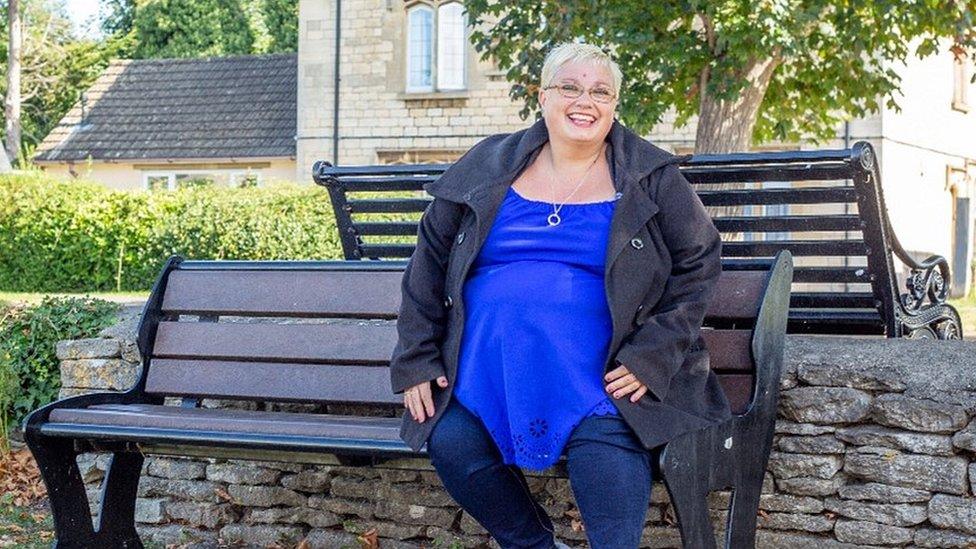
Rachael said she wants to be "that person's little rock"
Rachael, who was "in and out of foster care" when she was young, is currently mentoring a 14-year-old girl under this programme, as well as an adult under a separate scheme.
She meets her mentee for about an hour, once a week and activities can vary from meeting in a cafe, going on a walk, or even doing a word-search or crafts together.
"No one should feel lonely and lost," Rachel said.
"I'm not expecting to work miracles. You never know what those conversation are going to be... but to see them come away thinking 'oh that's been a positive result', to see that, I just love it.
'Little changes'
"It's those little changes in behaviour and that actually, maybe I am getting through to this young person."
While she was nervous when she first starting mentoring, Rachael said it is all about finding a connection that will help them open up.
"It could take weeks and months for them to actually open up about what they're really there for," she said.
"You've got gain their trust and and vice versa.
"It's to let these girls know that they don't need to do this or that, or to try and prove themselves, it's just to be you, for you."
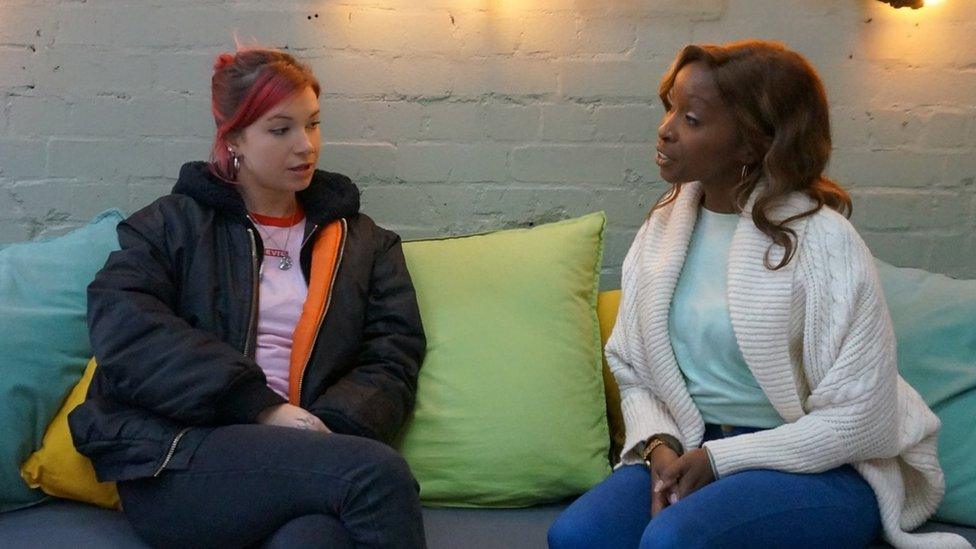
Those accepted onto the programme are likely to have had social services and police involvement present in their lives
The volunteers are supported by staff at the individual charities, and as well as an initial five-week training course, they can also attend extended training programmes that address specific concerns.
The programme is made up of seven mentoring organisations, which all have their own specialisms: 1625 Independent People; Breathe Youth; Thames Valley Partnership; The Door; The Nelson Trust; WAM Youth; and Young Gloucestershire.
Programme organisers said through listening to the girls and young women, it gives them the space to talk and be heard, which in turn helps them build resilience and to grow in confidence.
While the mentoring is not a crisis service, the mentors can find themselves dealing with issues ranging from emotional problems, run-aways, drug use, and suicidal thoughts.
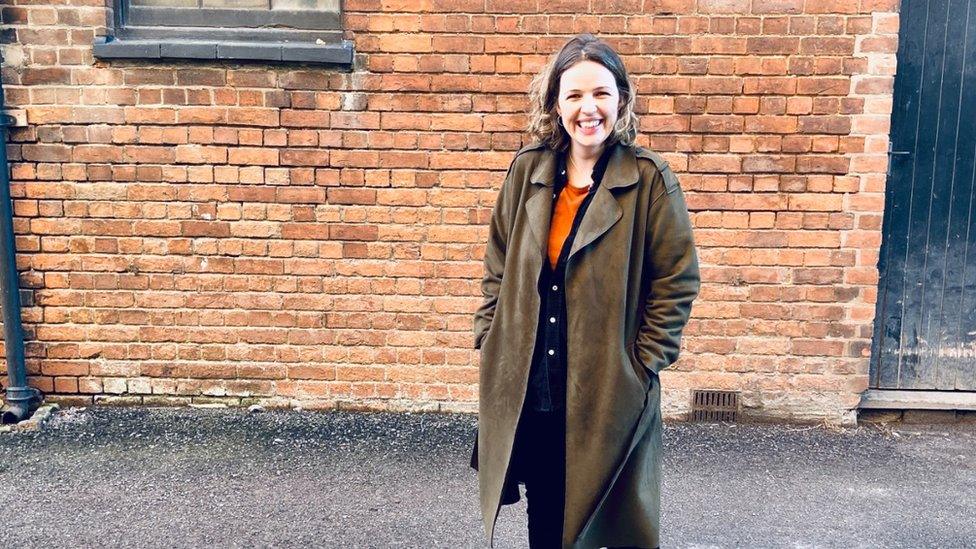
Elisha Kyne said the extended nature of the mentoring - of a year or more - really helps build trust
Gloucestershire Mentoring program manager for The Door, Elisha Kyne, said young woman and girls are often "overlooked".
"For young men and boys they may be presenting with more obvious behaviours that would be linking them, on the route to the criminal justice system," she said.
"Whereas for young women and girls that is sometimes less obvious, and also they can be the culprit of something due to being pulled in via another route.
"There's a lot of women who in prison, who, through the circumstances they have found themselves - unhealthy relationships, domestic abuse and violence or drugs and alcohol use - that means they are punished essentially for that, but not because of intentionally committing crime."
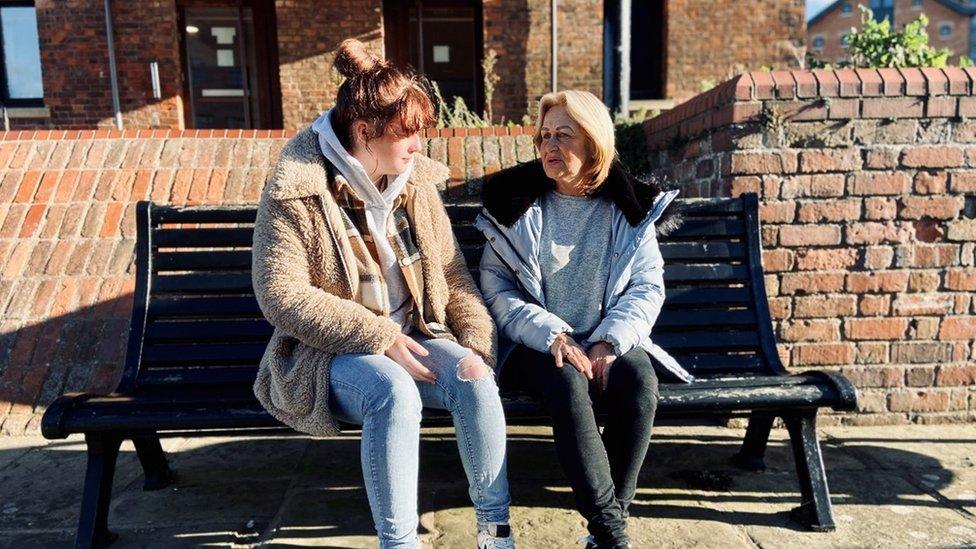
Mentors come from all walks of life
Ms Kyne said it is the long-term support - which can last a year or more - that is one of the things that makes this programme stand out from others in the area.
"In terms of that consistent support, and providing that trusted adult over the long period of time it doesn't exist," she said.
"The value of having most mentors as volunteers is also that that person is giving up their time, week in, week out, for that young person, voluntarily for free and some young people don't really believe that.
"It shows that young person they want to be there for them, they like them, they're not being paid to do it."
The programme, which also liaises with police, social care, health, education and youth services, has funding from the grant-making charity, CHK Foundation, to operate for at least two years.
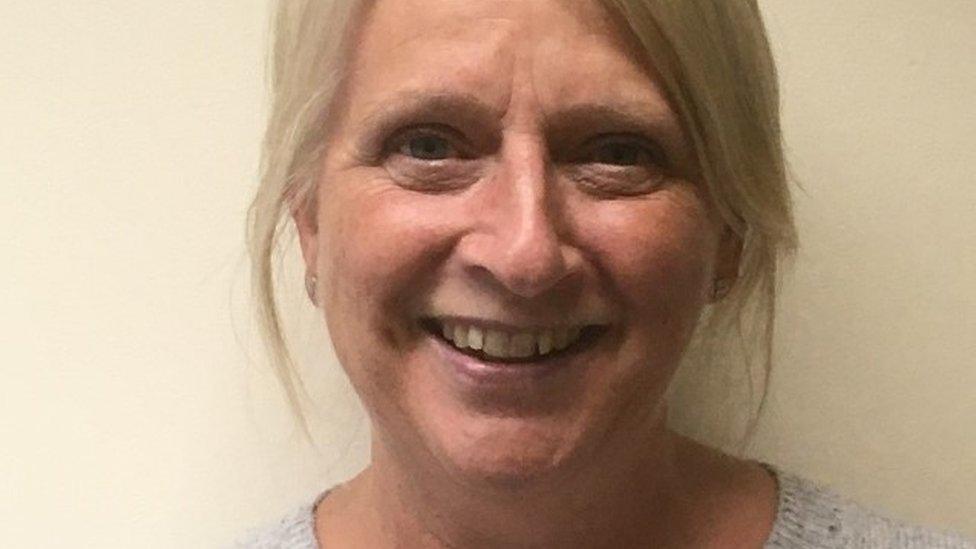
Jill Anderson hopes the programme will be extended beyond its initial two years
Jill Anderson, coordinator for Gloucestershire Mentoring Program, said that through working alongside other services they "bridge the gap between girls and young women, and the support they need".
"This is an earlier intervention - we are trying to support people who are going to be linked with the criminal justice system, but we're trying to do that earlier on," she said.
"These volunteer mentors working with these young girls, change their life outcomes.
"They help these young people to make good choices, because it's quite often we find that these young people don't have a trusted adult in their life, and that can be quite transformational."

Follow BBC West on Facebook, external, Twitter, external and Instagram, external. Send your story ideas to: bristol@bbc.co.uk , external
Related topics
- Published17 November 2022
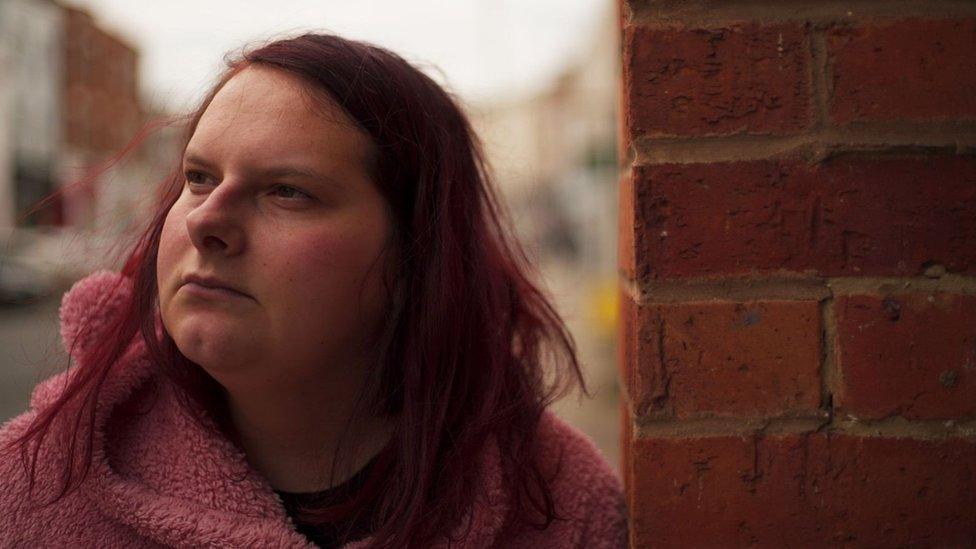
- Published18 November 2021
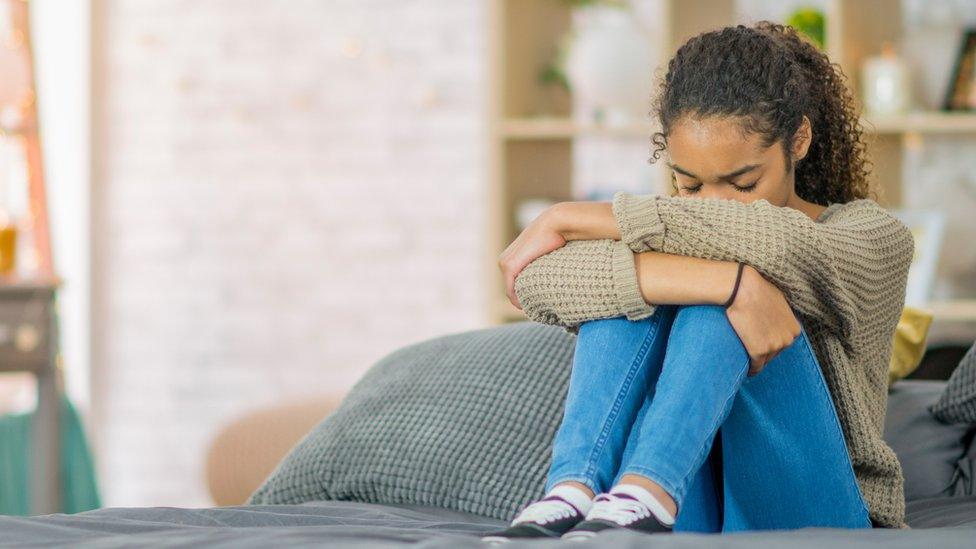
- Published27 January 2021
